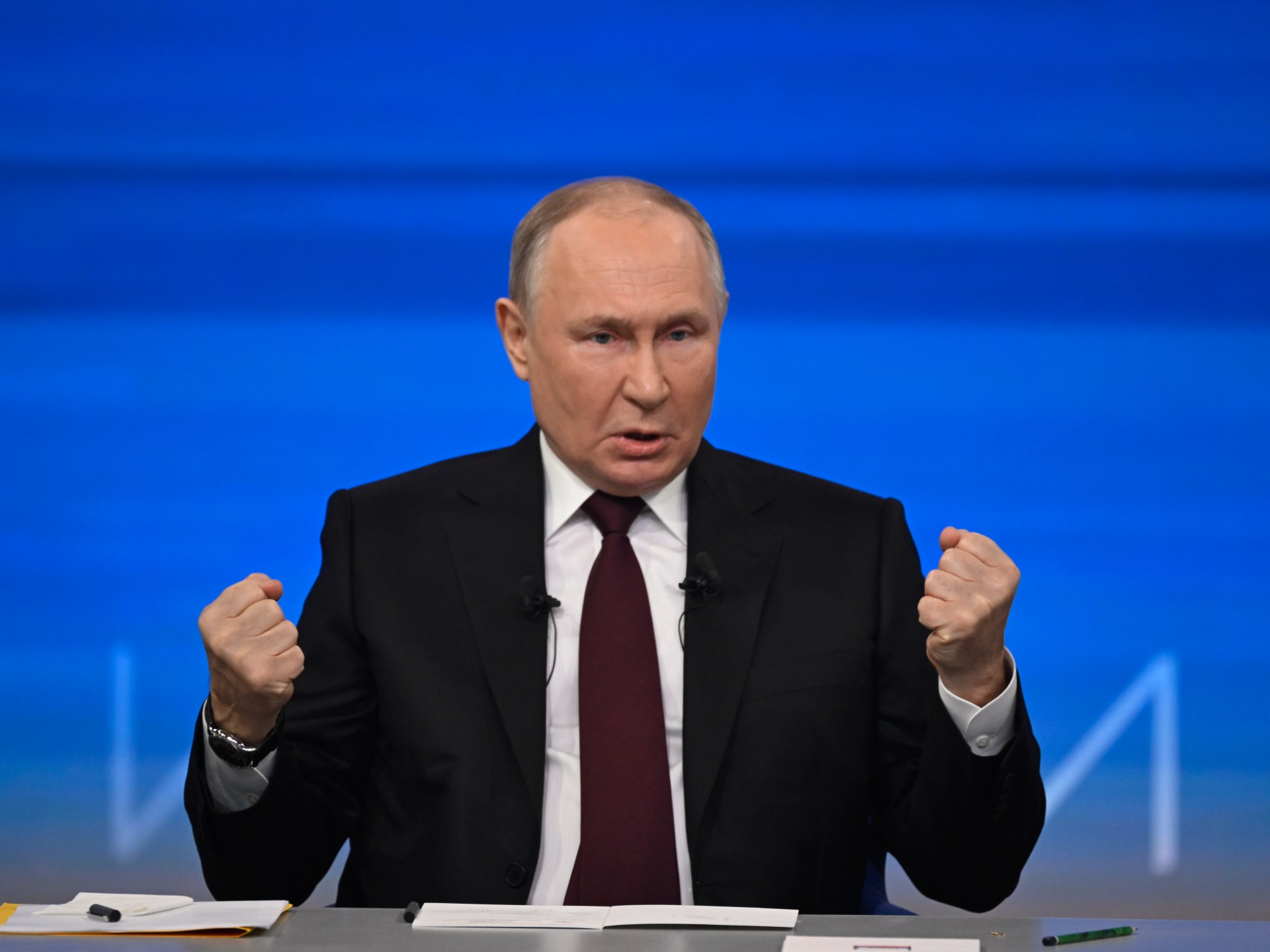Putin's era in 2020 witnessed a constitutional amendment allowing him to remain in power until 2036 (Anatolia Agency)
Between the war on Ukraine, the confrontation with the West, and opposition protests, Russian President Vladimir Putin, who took power a quarter of a century ago, is waiting to announce his victory on Sunday in presidential elections that will keep him in the Kremlin for another 6 years, as a war leader who holds power with both hands.
In 2020, Putin's era witnessed a constitutional amendment allowing him to remain in power until 2036, and in the elections that began on Friday and conclude on Sunday, it is certain that Putin (71 years old) will emerge victorious in a presidential term that will be his fifth.
He served as President for two terms of 4 years each, and two terms of 6 years each, separated by a period during which he was Prime Minister.
Putin's rule, coming from the ranks of the KGB, since his arrival in the Kremlin on December 31, 1999, has been characterized by two main features: the first is continuous rigidity with control over the wealthy oligarchs, the Second Chechen War, the stifling of public freedoms, and the restriction of the media and the opposition.
The second is to seek to gain geopolitical power, through the war in Georgia (2008), the annexation of the Ukrainian Crimean Peninsula (2014), military intervention in Syria (2015), and finally the war on Ukraine (2022).
Europe mistakenly believed that it was able to channel these ambitions, betting on economic interdependence through huge purchases of Russian gas.
new world
After Putin became involved in the war in Ukraine and faced many failures, he still insisted on achieving victory through attrition, betting that the balance would tilt in his favor in recent months and that the Western powers supporting Kiev would be exhausted with weapons.
Two years after the start of the war, Moscow forces recently took control of the town of Avdiivka, and continued to advance against Kiev forces, which were suffering from a shortage of weapons and ammunition.
In late February, Putin stressed that “the Russian armed forces will not retreat and will not fail,” considering this a matter of “life or death” for Moscow.
During the current week, it was considered very important for Russian voters to vote in unified ranks to remain on the set path.
Since the start of the Russian war, Putin has given a series of speeches in which he accused Ukraine of “Nazism,” announced the annexation of parts of its territory, and portrayed the conflict as a proxy war with the Americans.
But nothing deters Putin from his goals. He has set his sights on one mission, which is to get rid of the hegemony of the West. In October, he announced that his “mission is to build a new world,” describing the Ukraine war as the event that will define his “principles.”
Facing west
It must be said that the former KGB agent, who was stationed in East Germany in the 1980s, is still affected by the disintegration of the Soviet Union as a sign of Moscow's defeat in the Cold War.
In order to achieve his goals, Putin today is proud of the diplomatic support he receives from China, and points out that Asia, especially India, is flocking to Russian oil, and that Africa considers him an ally against Western “neo-colonialism.”
After the failure of the Ukrainian counteroffensive in the summer of 2023, Putin felt he had more room to maneuver, with Westerners still divided over continued military aid to Ukraine.
He returned to the international arena while the Russian economy generally absorbed the shocks of Western sanctions, despite inflation and dependence on military production.
But despite his strength, the Russian president still faces challenges. He is far from winning in Ukraine, and the ability of the Russians, the elite, and the economy to withstand this conflict in the long term remains an open question.
The seeds of a rift with the West had sprouted and Putin expressed them in 2007 during the Munich Security Conference in a sharp speech he delivered to senior Western figures. He then accused NATO of threatening Russia through expansion and criticized the United States for ascribing to itself “sovereignty.” "absolute" in the world, which are the same justifications he used for the war on Ukraine.
On the domestic political level, the Kremlin did not hide its intolerance towards any opposition.
Source: French

